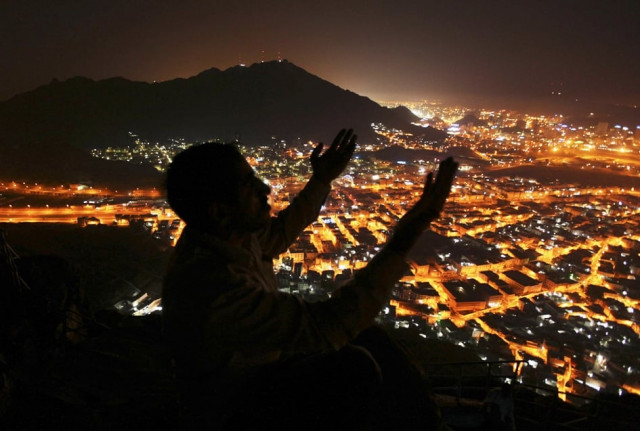Targeting freeloaders
The Supreme Court will hopefully have set at least one thing right with its latest public interest litigation.

Efforts are being made by the government to fend off the latest suo motu notice from the Supreme Court which alerted to the debasement of the sacred ritual of Hajj through corruption. Some ‘sponsors’ were named who supposedly bore the expense incurred by those who went on the pilgrimage, but the hidden truth was revealed by the remark of a judge on the bench who opined that “there would be serious repercussions if the state were to rely on individuals for sponsoring officially-sanctioned expenses since the sponsors would want to obtain maximum benefit in return for the favour”.
Armed with facts from earlier cases against the official handlers of Hajj, the honourable court found it easy to grasp the real harm the freeloading Hajjis had done to the state finances and to the cause of genuine Hajjis. To the so-called ‘after-the-fact’ sponsors it said that instead of earning sawab through sponsoring government sifarishis, it would have been better to donate the money to the victims of the worst flood in Pakistan’s history. It also observed that accommodating the freeloaders in buildings originally rented for the real Hajjis had contributed to the shortage that had forced the less privileged pilgrims to suffer hardships and cost the government Rs460 million later paid out in compensation to them.
The state of Pakistan suffers from many financial ills of long gestation. Indeed, some ‘peripheral scams’ have gone on for so long that elected and unelected people attached to the state consider it their right to bite off little bits of the budgeted expenses, even during times of economic emergency. One after the other, elected parliaments have seen prime ministers and presidents throw away taxpayers money on ‘guests’ they take along when they go abroad on official visits. Such ‘visits’, with hundreds of guests travelling, has been with us right from the beginning and our best rulers have been guilty of it. Some of the beneficiaries have now become popular leaders. One can recall at least one who voluptuously reclined on a couch in the most expensive hotel in London — every bill was paid by the state — and boasted on a Pakistani TV channel that he was having the best of times, while his prime minister parlayed with his British counterpart. There are many in the world of Pakistani media, too, who have accepted such freebies and collected the infamous TA/DA (travel allowance/daily allowance).
What has hit the people of Pakistan in the face this year is the Hajj scam. A very pious-looking minister for religious affairs has lost his job and is facing possible conviction for corruption in the handling of the biggest state undertaking abroad: Hajj. If you look at the mass of pilgrims who go for Hajj and Umrah every year, you will realise that most of them are poor and from rural areas where religious devotion remains strong. Considering that it costs an average of Rs250,000 for a person to perform Hajj, one can imagine the hardship people go through for fulfilling their religious duty. The state has consistently let down these people in all kinds of ways, including the mess regularly created by the mishandling of their transport on the state-owned airline. In addition, the pilgrims are overcharged for accommodation and its location is usually far from where it is supposed to be. But since the pilgrims are mostly not very well-off or well-connected, nothing is done to stop their exploitation. The Supreme Court will hopefully have set at least one thing right with its latest public interest litigation. It will have removed the shame of debasing the faith of Islam with scams.
Published in The Express Tribune, April 10th, 2011.














COMMENTS
Comments are moderated and generally will be posted if they are on-topic and not abusive.
For more information, please see our Comments FAQ